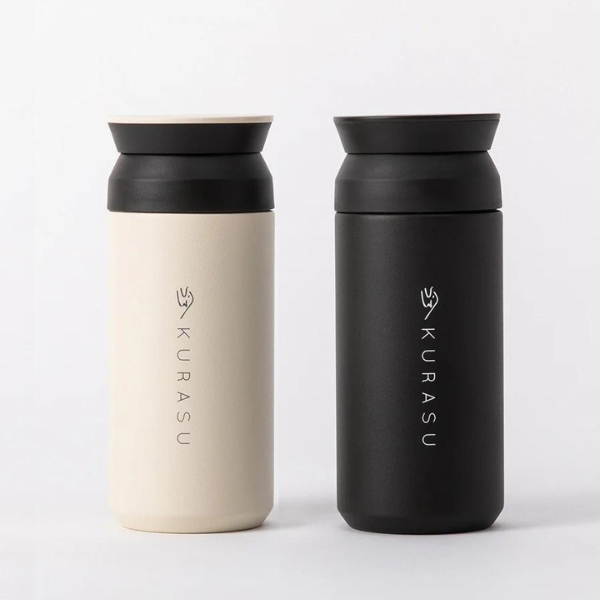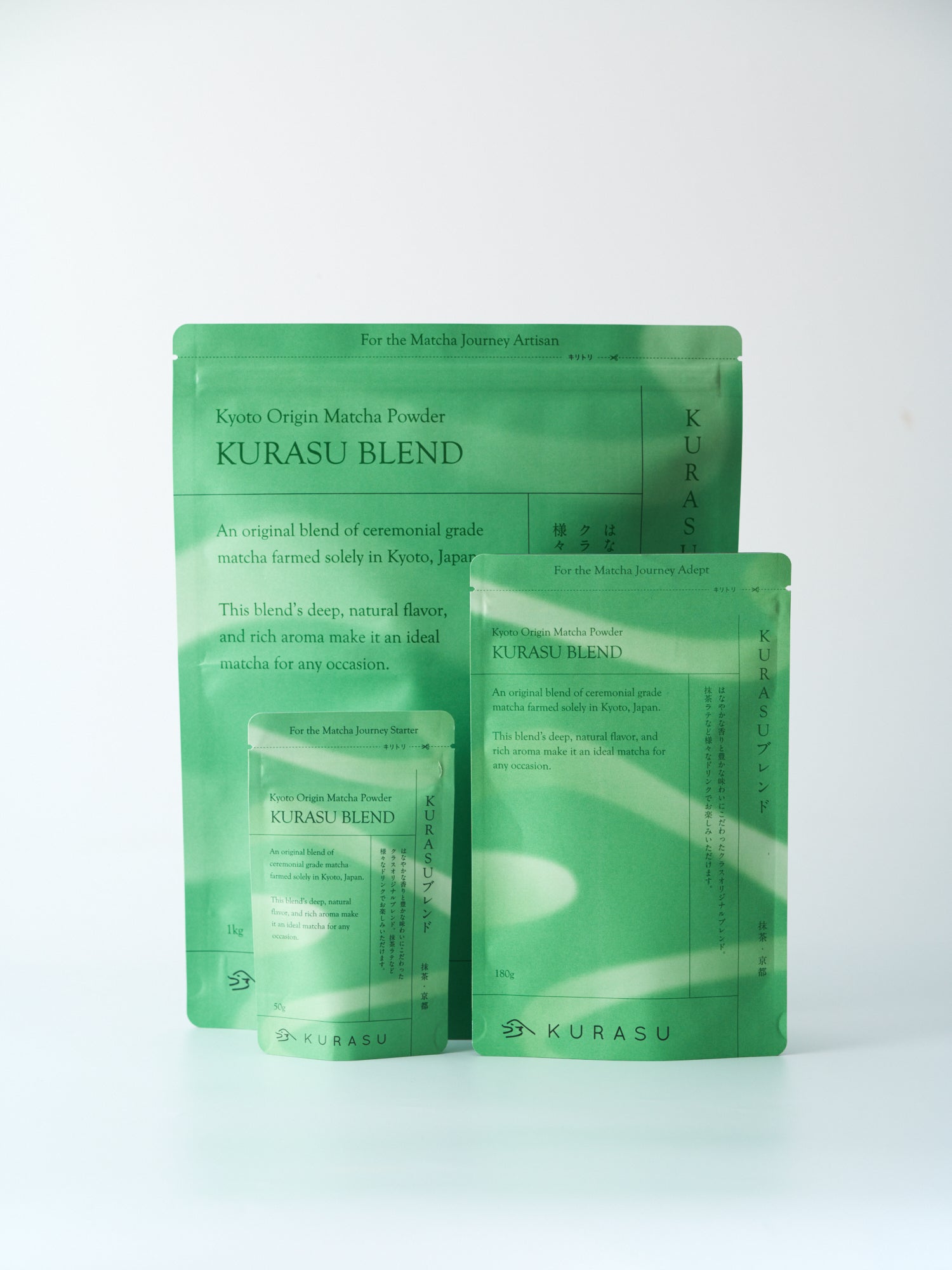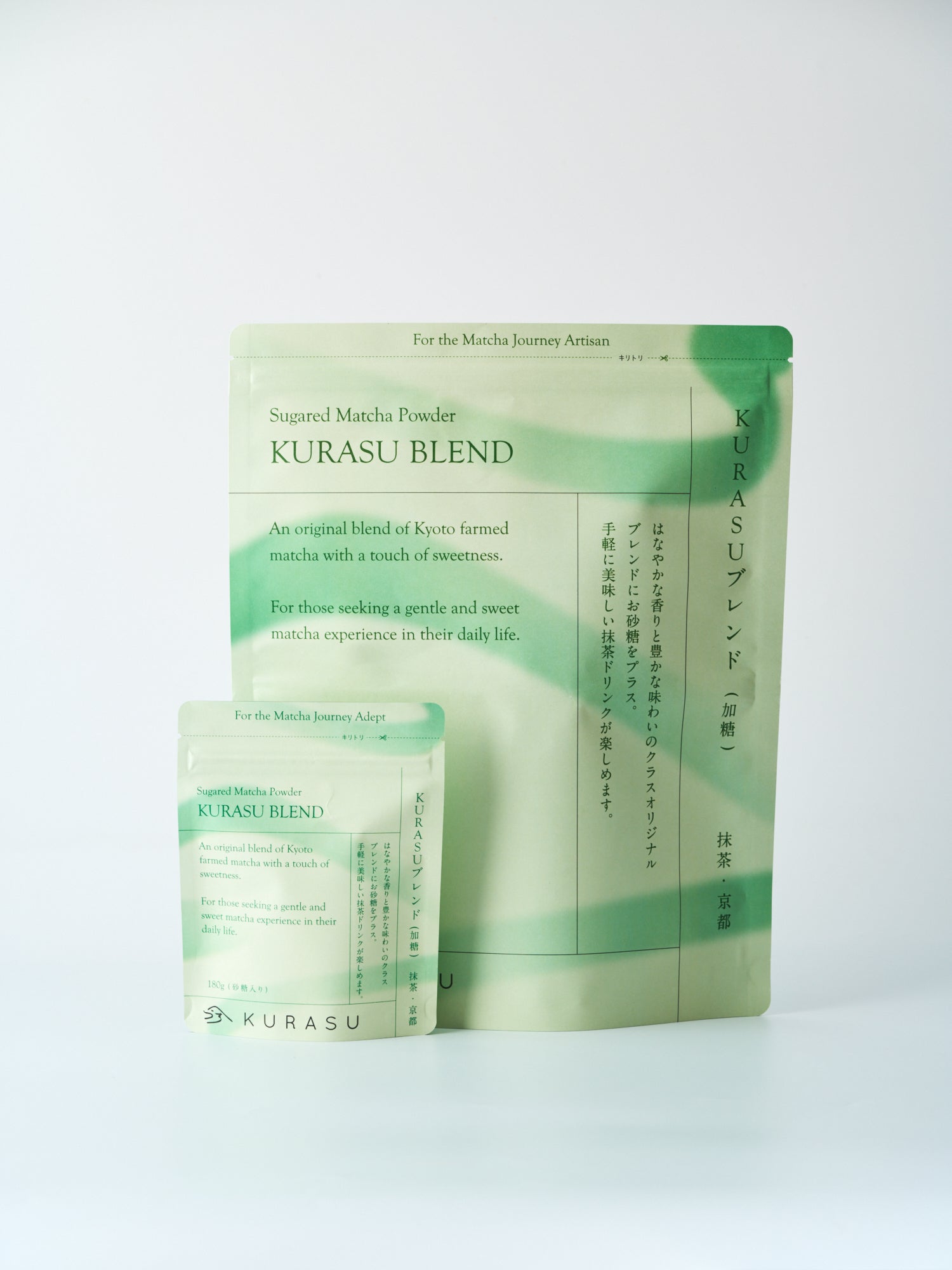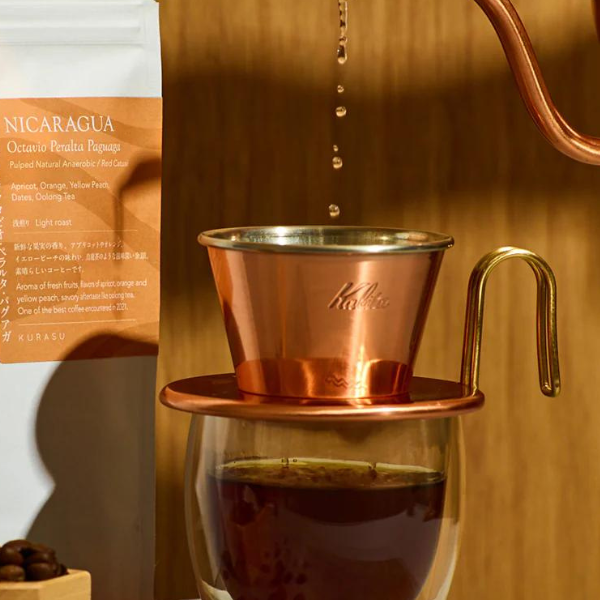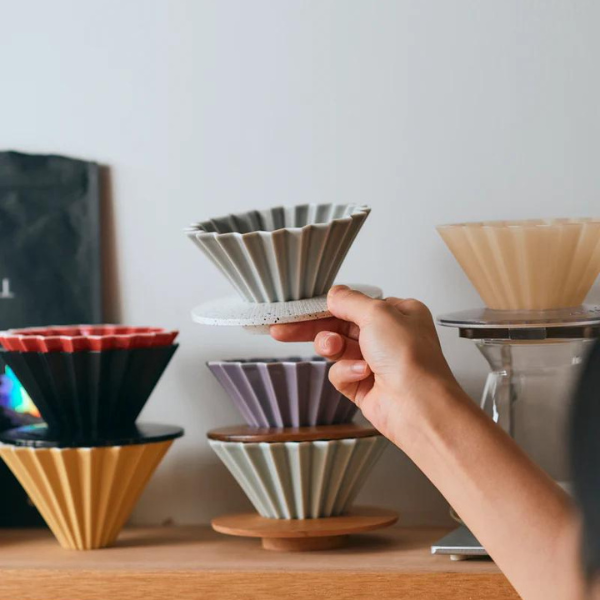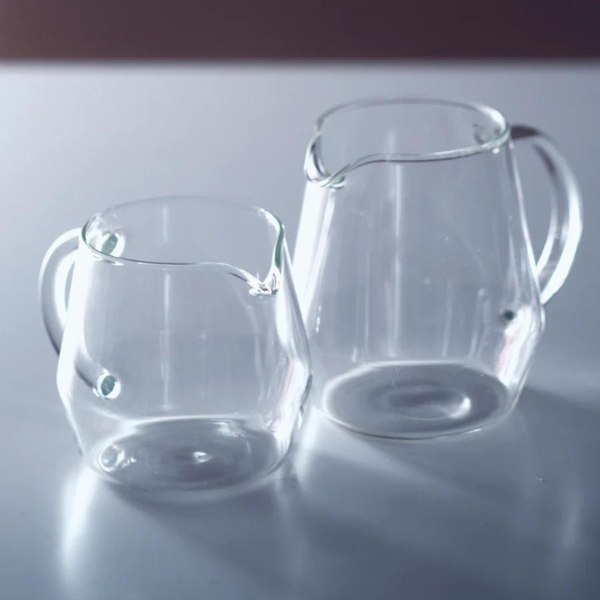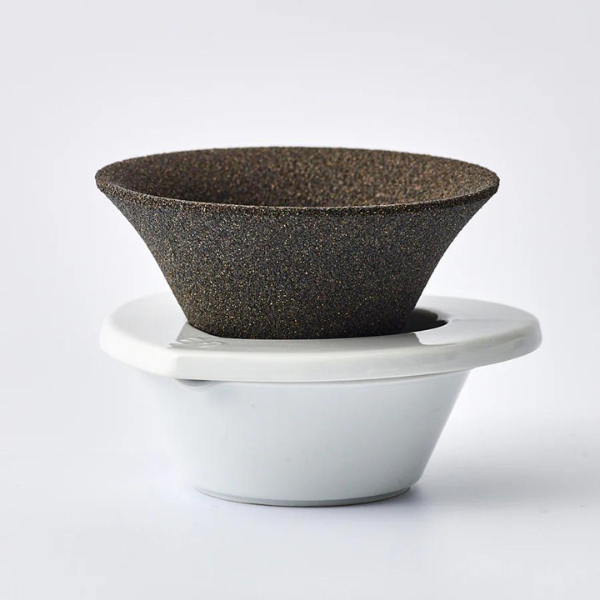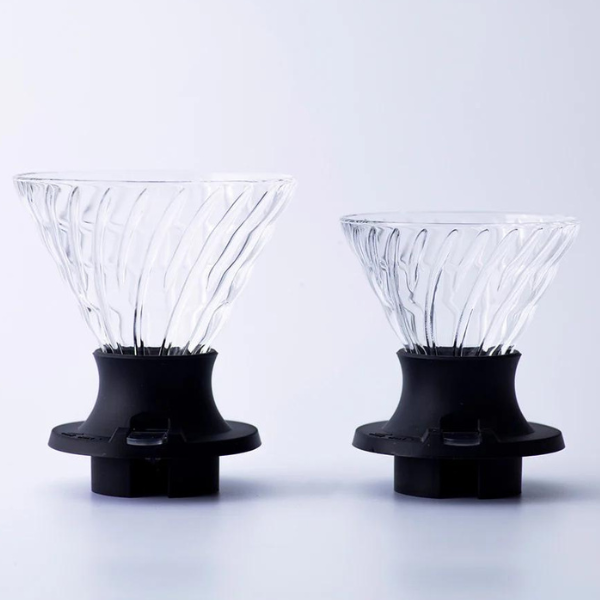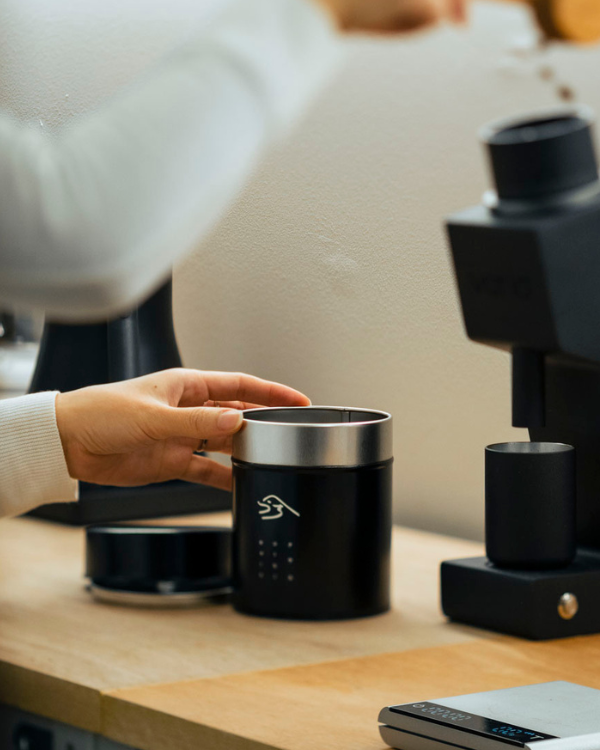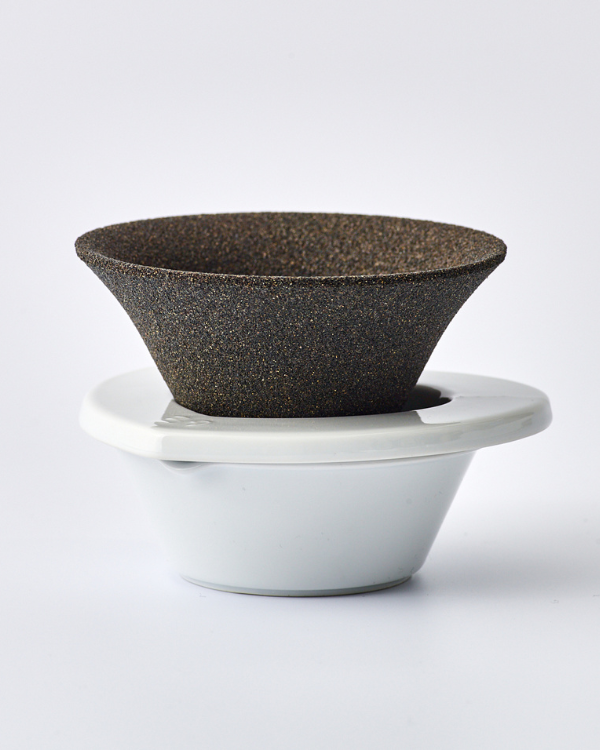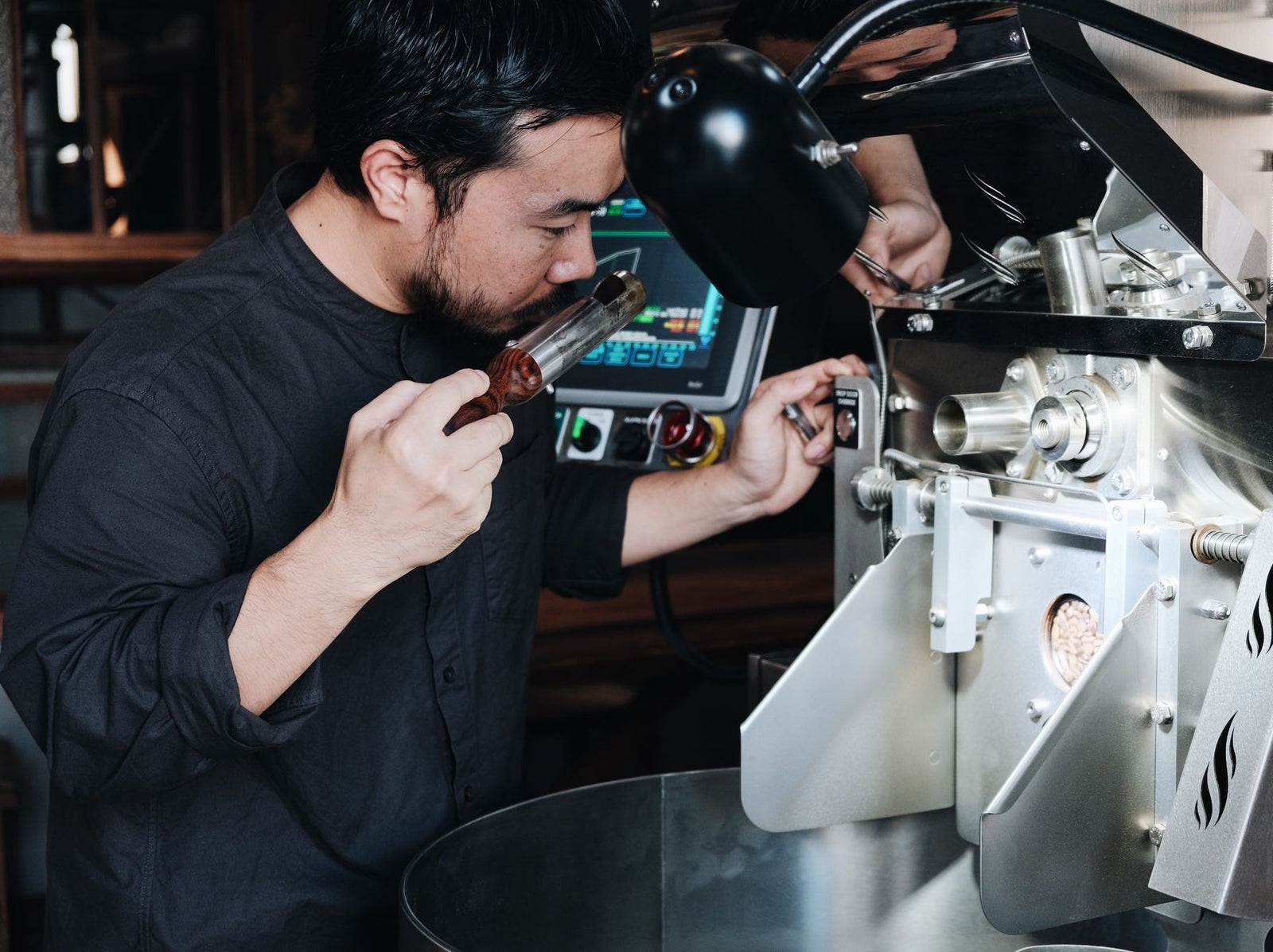The next #KurasuPartnerRoaster is AKITO COFFEE in Kofu, Yamanashi. The leading roaster in Yamanashi, the pioneer of its specialty coffee culture, AKITO COFFEE recently opened a new roastery called TANE, renovating a historical miso factory, together with their first cafe near to Kofu station. We visited their roastery this time to interview the owner, Mr. Akito Tanzawa.

How It Started
Tanzawa-san opened AKITO COFFEE naming after himself 6 years ago, when he was 23 years old. When the young Tanzawa-san asked himself what kind of future he wanted to build and what kind of life he wanted to lead, he simply couldn’t imagine becoming a “salary man.” “I wanted to find an independent path with my own ability. I have always loved meeting new people, so I thought, ‘food industry it is then’!”, Tanzawa-san reflects.
He started as a trainee at a Japanese restaurant, and while he gained some skills, the high price setting and the prestigious atmosphere of the restaurant made it difficult for Tanzawa-san to casually invite people or communicate with the customers.
Thinking that this wasn’t what he was looking for, Tanzawa-san decided to explore more in the industry. “I then discovered that specialty coffee was growing in popularity. A cafe is an ideal place to have a friendly conversation with someone you have met for the first time, unlike restaurants. I wanted to create a space where people can drop by in the same way that they visit their friends and enjoy a good cup of coffee,” he says.

The Lonely Journey to Success
Once he decided to open a coffee stand, Tanzawa-san immediately started to study the techniques required to roast coffee. His initial concept was to keep the business size small, handling everything himself with a minimum equipment. He installed a Fuji Royal 1kg roaster and an Appia One Group espresso machine.
Kofu, his home town was always his first choice for the shop’s location. However, there wasn’t really a market for specialty coffee, nor shops or cafes really served it, and traditional Kissatens were the majority in Yamanashi. The future was not exactly bright considering the potential challenges Tanzawa-san was very likely to encounter, but his wish to introduce something good to his fellow people and his attachment to the town overpowered the fear, and Tanzawa-san made up his mind and decided to settle down in Kofu.
“I never felt pressured in terms of making profit as I was on my own, but the most difficult part was to get the information and the knowledge. I only had myself to train with, there was no one who can teach me or train me. So I often went to big cities like Tokyo and visited as many cafes as possible to observe the baristas and showered them with questions. I was just so desparate” Tanzawa-san looks back.
Brushing up one’s own skills can often be a lonely process. Your true competitor is yourself, and Tanzawa-san often had to struggle with envy and frustration whenever he heard of someone who just started out and was already excelling. All of those emotions kept him going, and he persistently analyzed coffee from major roasters in Tokyo as well as overseas, such as Market Lane, Coffee Collective and Tim Wendelboe. He would also take his roast to show to the people he knew in the industry in order to get some informed feedback.

“I tried to recreate the flavor of the famous roasters using the same beans, based on my analysis of their roasting method, and often failed. Then that made me wonder where the difference is coming from, and gradually I started to see patterns. In the end, I could even tell what influenced each roasters’ choices from the selection of beans to their business concept,” says Tanzawa-san.
He still remembers the moment of realization when he tried a roaster from a rural area of Japan- “I could see that they were roasting to be compatible with their customers in the area. I was so inspired by how when they roast they can express not just their character and their business concept, but their relationship with the farmers and their customers. It was almost like I could see their faces on the other side of the cup. Including how they select the beans, I could tell that they value their relationship with the farmers and cherish their customers- I have so much respect for such roasters,” Tanzawa-san excitedly explains.

It’s About People After All- Taking Down the Wall
“I don’t want to categorize or ‘target’ a certain kind of people. I want everyone to come and enjoy our coffee, and taking down that kind of wall between specialty coffee and people to make it more accessible and welcoming is exactly my goal. I want the local people to love our coffee and having conversation with us, and that’s the most important thing. It doesn’t matter if our coffee is ‘the best in Japan’ or not, it’s our objective to work on, and our effort to reach that level does not matter to our customers. We are professionals of coffee and that’s a basic requirement, but once we are at the cafe, it’s all about people. We concentrate 100% on the person in front of us to make sure they enjoy their time here”, Tanzawa-san explains.
What led Tanzawa-san to this industry in the first place is his love for people and the interaction and communication. He has come a long way since then, even became the top roaster in Yamanashi, but that core value has not changed a bit.
That attitude also applies to his staff and how he carries on with his business- he makes sure that the business stays sustainable and personal, and his staff is allowed to try anything freely to develop their abilities and interests. People come first, and as a result of that, an interesting chemistry happens and it changes things. One member of staff moved out of Tokyo for their love for Yamanashi, another member of staff is dreaming of opening their own cafe in the future, there is a member of staff who can bake wonderful cakes- what AKITO COFFEE is now is all based on the organic growth of human interactions.
“I don’t start with having a concrete concept for the cafe, but it always starts with us meeting people and them joining us, and creating opportunities for them to express themselves, working hard on what’s in front of us, and here we are. I have never imagined buying such a big roasting machine”, Tanzawa-san laughs- it is clear that his flexible and inclusive philosophy is what is making AKITO COFFEE so comfortable for everyone to visit, stay and join, attracting so many people around.

A Benefit of Operating in a Rural Area
Another thing people frequently visit AKITO COFFEE for is their cakes and pastries using fresh and juicy seasonal fruits, produced locally in Yamanashi. We asked Tanzawa-san about how choosing the rural area of Japan made a difference to his brand, and its benefit and difficulty- “Everything is great, all benefit, I can’t find anything negative about this decision”, he replies. In Yamanashi, the abundance of green nature and its land provide people everything they need. Tanzawa-san explains that that was something he couldn’t see until he left the town to live in Tokyo, and that would be the case for many young people who leave their home thinking there’s nothing, and everything is in the big city like Tokyo.
“It’s a shame that many people still feel that it has to be in Tokyo for anything to be good, or everything in Tokyo is superior to what you can get in countryside areas. However, if you can take advantage of this environment full of resource and gifts from nature, and brush your skills up to national/global quality, nothing can beat it. That will lead to more opportunities for people to see the rural areas with a set of fresh eyes too. In that sense, coffee is a very fair tool that only thing you need to do to find out if it’s good or bad, is to cup it. Although we are not known yet, we are very confident that the quality of our coffee will shine through if anyone cups it, and that belief has been fueling our mind”, Tanzawa-san explains.

AKITO COFFEE’s Roast
With his effort finally bearing fruits, AKITO COFFEE grew into a leading roaster in Yamanashi. Their newly-opened roastery with a large scale roasting machine, TANE, is one of those achievements. A roasting machine Tanzawa-san chose for his new chapter of his business is Loring Smart Roaster 15kg. The reason he picked this particular roaster is because he felt he can recreate the exact flavor he has in mind. Compared to the previous 1kg roaster, this new, larger machine liberated Tanzawa-san a lot. It gives more stable results and better efficiency, and now he can stay at the cafe for most of the days of the week to get a live feedback from his customers, staff and himself by manually brewing the coffee he roasts.

“I always make sure to pick a coffee that people can enjoy at ease every day. The price of the green beans and the price we set at the cafe should both be affordable at anytime. Of course, I know that expensive coffee can be very good, but if you obsess with that part of the standard setting and qualifications, there will be a danger of admiring the coffee only professionals are enthusiastic about, leaving everyone else behind. I don’t need that. That’s why I never serve a cup that costs like 1,000 yen, but I make sure that the quality is always as high as that. A cup of coffee needs to be good when it is in front of the customer, for them to enjoy, and that’s the single most important thing.”
Tanzawa-san feels that specialty coffee culture is gradually earning the recognition with people in Yamanashi. He does not have a strict rule such as “light roast only”, but flexibly changes the roasting styles and levels according to the characteristics of the green beans. “Each coffee is unique, and giving them a suitable roast makes a good cup of coffee. I feel more and more people started to appreciate that”, Tanzawa-san smiles.

The Future Plans
“I am not planning to roast just specialty coffee”, Tanzawa-san says- he feels that it’s important to establish a sustainable and trusting relationship with farms, by pushing up the entire quality of their products, not by limiting to specialty class coffee, skimming the top and leave the rest.
“We would want to reach the level where a farm would appoint us as a roaster for their coffee beans- we want to be proactive, we want to be different. Otherwise it will all be the same. We all buy good quality coffee beans and roast good coffee, competing in the same league. I don’t think that kind of system lasts long. I see a lot of space for improvement in how roasters pick/treat green beans and build a trust with farmers- that needs to be changed” Tanzawa-san says, looking forward to the even brighter future ahead.


